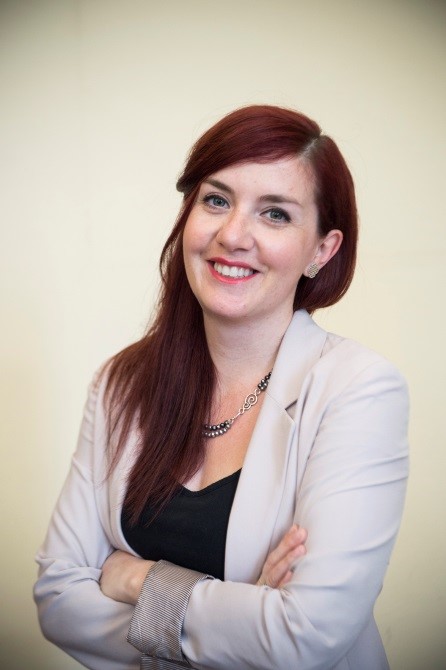- Ateneo
- Jean Monnet Module
- Teaching staff
- a.y. 2017/18
a.y. 2017/18
|
Educating to intercultural sensitivity Full professor in Sociology of cultural and communicative processes, director of CIRMiB (Centre of Initiatives and research on Migration, Brescia) at the Università Cattolica del Sacro Cuore (UCSC). She teaches Sociology of education; Sociology of educational policy; Sociology of Inequalities and Differences. Her main areas of interest are education, training and socialization processes and supply, education systems, impacts of migration in schooling, social changes in teachers' role; cultural innovation and interculturalism. She co-ordinates the Laboratory of researches and social intervention at the Università Cattolica of Brescia. Member of the managing board of other research structures and Post graduation Courses at the UCSC; since 2011 member of Scientific Board by ESA /European sociological association, RN 10 – Research network “Sociology of education”; co-director of the Book serie "IES - INNOVATION, EDUCATION AND SOCIETY" by the Publisher FrancoAngeli, Milano. |
|
Léonce Bekemans (BA in Philosophy, MA in International Studies and PhD in International Economics) has an international profile and interdisciplinary academic background with a broad and long-lasting research and multi-lingual teaching/research experience in European studies and an international publication record. He has been for 10 years professor at the College of Europe and worked for various European institutes with combined teaching, research and management responsibilities. His main research interests relate to the broad area of value-oriented integration studies with a focus on the relations between economy, polity, culture and society from a global, European and local perspective and their wider societal impact. He is a Jean Monnet Chair ad personam at the University of Padua and academic coordinator of its Jean Monnet Centre of Excellence, a formally acknowledged success story of the EU Jean Monnet programme and collaborator of its Human Rights Centre. He is visiting professor at various European universities, an appreciated speaker at international conferences and an expert to the UN, Council of Europe, the EU, Committee of the Regions, Anna Lindh Foundation in relation to European education, intercultural dialogue and multi-level governance issues. He is the SG of ECSA-World and also the president of “Ryckevelde”, a not-for-profit organisation dealing with European citizenship in Bruges (B). |
|
Floriana Conte is employed as administrative staff at UCSC Global Engagement and International Education and she is currently in charge of the administrative and financial management of programs Erasmus+ cooperation actions (Capacity Building projects, Strategic partnership projects, Erasmus Mundus), Jean Monnet, Europe for Citizens and Edulink II. |
|
Current developments in technology mean that a large proportion of the ‘Western world’ can reach the rest of the world with literally their fingertips. From traditional to new media, we will consider how culture informs and shapes basic processes of communication, from the production of the message to the delivery, reception and interpretation. We will consider both socio-cognitive and constructionist approaches to explore cultural work in interaction with others. Finally, consider the implications of the above for successful communication across cultures. Sharon Coen is a Senior Lecturer in Media Psychology at the University of Salford. Trained as a social psychologist, she obtained her ‘Laurea’ degree in Psychology at the Universita’ degli Studi di Padova, where she worked under the supervision of Professor Anne Maass and obtained her PhD in Social Psychology at the University of Sussex where she worked under the supervision of Professor Rupert Brown. Between 2007 and 2012 she worked at Christ Church University in Canterbury as a Lecturer and then a Senior Lecturer in Psychology, while developing a 7 year long collaboration with Professor James Curran at Goldsmiths University with whom she worked on a series of comparative studies exploring news media content and public knowledge of current affairs across Countries. . |
|
Ángel Gómez is Full Professor of Social Psychology at the Universidad Nacional de Educación a Distancia, UNED, Madrid, Spain, and member of Artis International, Arizona, USA. His main research interest is to understand the nature of intergroup violence and conflict. Together with Professor Swann, Professor Gómez is one of the original authors of identity fusion theory, a visceral feeling of oneness with a group that predicts extreme behavior. In the last decade, he has published about two dozens of investigations deepen into the process related with this theory. Recently, and with Professor Atran and other colleagues, he has conducted several investigations in the field about sacred values, the model of the devoted actor, and the spiritual dimension of the human conflict in the recent conflict with Daesh. In addition, he has been working in parallel in complementary lines of research about the limitations of classical strategies for conflict resolution and how to solve them (intergroup contact, extended contact, recategorization, prototipicality), and in new strategies for improving intergroup relations (depersonalized extended contact). . |
|
Dr. Nicola Montagna joined the Department of Criminology and Sociology and the Crime and Conflict Research Centre at Middlesex University in September 2008. He holds a PhD in Sociology at Middlesex University and a MSc in Sociology from London School of Economics, as well as a BA in Philosophy from Milan University, Italy. He is a member of the British Sociological Association. His current research focuses on global social movements and collective violence, occupied social centres and youth movements, urban movements, international migration, migrant protests, Italian politics, political and sociological thought. He has widely published in peer reviewed journals and edited books in several languages. He is co-editor with Vincenzo Ruggiero of Social Movements: a reader, Routledge, 2008, and with Sue Mew of "Conflicts within the crisis", Social Justice, 39 (1), 2013. |
|
The intercultural dialogue and the European political agenda Lecturer in the Department of Sociology and Social Anthropology of the University of Valencia. Member of its Human Rights Institute, of the Interdisciplinary Study Group on Migration, Interculturalism and Citizenship Studies (University of Castilla-la-Mancha) and of the Welfare, Community and Social Control inter-university group (University of Barcelona). He holds a B.A. and a PhD in sociology and a diploma in social work. He has coordinated Doctors of the World's public health centre for immigrants in Valencia, led CeiMigra's school of intercultural citizenship and worked as an immigration officer in the municipal administration of Benicarló (Castellón, Spain). He collaborates in courses offered by a range of public institutions, universities, foundations and NGOs and has given talks and published articles on issues of immigration, social exclusion, multiculturalism, citizenship, integration and public policies. |
|
Does religion belong to the private or to the public sphere? The current debate concerning the relationship between religions and public space within a liberal-democratic context shows that crucial topics such as laicity, interreligious dialogue, ‘fanaticism’, law and rights have been misunderstood as they are placed within the myth of a ‘neutral’ public space, that is, a political realm ruled by bureaucracy and laws that are putatively ‘neutral’ because governed by ‘impersonal’ procedures. The latter pretends to be the unique instrument able to guarantee peace especially within a multicultural society. On the opposite, we want to argue that the other person and his/her religious faith is not a threat, but a presence necessary in order to reach human fulfillment. Alessandra Gerolin is Lecturer in the History of Philosophy at the UCSC where she teaches Elements of Political Philosophy in the Faculty of Education. In the past she thought History of Philosophy, Theoretical Philosophy in the same Faculty and Citizenship and Religion in a Multicultural Society at the UCSC International. She is fellow at the Centre of Theology and Philosophy at the University of Nottingham (UK) and collaborates with the Centre for the Social Doctrine of the Church, based at the UCSC of Milan. She has published various books, including Persona, libertà, storia. Studio su Lord Acton (2009), Coscienza dell’ordine e ordine della coscienza. Il pensiero filosofico e sociale di Frederick Denison Maurice (2010), Oltre l’idea moderna di lavoro. Suggestioni filosofiche e teologiche dal pensiero anglosassone (2011), Uno strappo alla regola. In dialogo con Taylor, Williams e MacIntyre su beni e norme (2017), Etica e interpretazioni della secolarizzazione: problemi e percorsi (2018) as well as articles in national and international academic journals. Her current research project focuses on a critique of 'nomolatry'. She is member of the editorial board of the international academic journal ‘Radical Orthodoxy: Theology, Philosophy, Politics’. |
|
Paolo Molinari is Associate Professor in Human Geography at the Faculty of Education, Università Cattolica del Sacro Cuore in Milan. He holds a Ph.D. in “Environment quality and regional economic development” (University of Bologna) and a Post-doctoral research fellowship at the Ecole Normale Supérieure de Lyon (France). Researcher at the Italian National Institute of Statistics (ISTAT) from 2001 to 2004. His main research topics relate to the field of regional studies, political and administrative geography, territorial governance, poverty, social inclusion and housing issue. He is working in collaboration with European research centres and universities on the territorial dimensions of the European cohesion (competitiveness in sustainability, poverty, impact of the crisis in the South European countries). He is member of the scientific committee of some international journals (J-Reading, Journal of Research and Didactics in Geography; Scienze e Ricerche). Visiting Professor at the Universities of Paris Diderot and Paris Est Marne-la-Vallée. |
|
“Ce que nous préparons, à travers l’action de la Communauté, n’a probablement pas de précédent. Cette communauté est fondée elle-même sur des institutions qu’il faut renforcer, tout en sachant que la véritable autorité politique dont se doteront un jour les démocraties européennes reste à concevoir et à réaliser. Et la Communauté elle-même n’est qu’une étape vers les formes d’organisation du monde de demain” Jean Monnet, 1976. Graduated in Philosophy at La Sapienza in 1994, after (1997) he obtained a Master Degree in European Integration Studies at the College of Europe in Bruges and a Master Degree in Interactive Multimedia Project and Cyber-communication at the ISC Saint-Louis in Brussels (2002). Luciano defended his PhD, which he obtained from the VUB, in 2004. Since then he has been working as researcher and professors at the Vesalius College and the VUB, and as visiting professors at La Sapienza, Rome and at the University of Wisconsin, Milwaukee. He regularly teaches for the Executive Office of the College of Europe of Bruges. Luciano has been working in many European co-funded projects and as an expert for the European Commission and the Committee of the Regions. He has been teaching and coordinating various Jean Monnet modules and a Jean Monnet Conference. He teaches courses related to the European Union Public Sphere and Information and Communication Policies, the History and Theories of European Union integration, European Union Policies related to Media and New Media. He published articles and edited books and journals about the European Public Sphere and European Cultures, European Media and Internet policies. |
|
Adrian Pabst is Reader in Politics in the School of Politics and International Relations at the University of Kent where he also directs the Centre for Federal Studies. He is also Fellow at the National Institute of Economic and Social Research (NIESR) and in 2018 he was appointed to the Sir Peter Lawler Visiting Fellowship at the PM Glynn Institute (Australian Catholic University). Adrian studied economics and politics at the University of Cambridge, the London School of Economics and Sciences Po Paris before studying philosophy and theology at the Institute Catholique de Paris and then gaining a PhD in political philosophy and philosophy of religion from Cambridge (2002-2006). In 2007 he joined the University of Nottingham where he held a Leverhulme Early Career Fellowship, and in September 2009 he was appointed by the University of Kent. His research and teaching are the interface of political thought, political economy and political theology. He is the editor of The Crisis of Global Capitalism: Pope Benedict XVI’s social encyclical and the future of political economy (Wipf & Stock, 2011) and the co-editor of Blue Labour: Forging a New Politics (I.B. Tauris, 2015). He is also the author of Metaphysics: the creation of hierarchy (Eerdmans, 2012) and the co-author (together with John Milbank) of The Politics of Virtue: Post-liberalism and the Human Future (Rowman & Littlefield, 2016). His next book, Democracy after Liberalism, will be published by Polity Press in late 2018. |
|
Since 2001 she is Professor of Modern History at UCSC and since 2004 Social History professor at UCSC. She has been Professor of World History at the Kent State University in Florence. Her main research fields are: History of political institutions in Early Modern History; Aristocracy and aristocratic culture XV-XIX century; Holy Roman Empire XV-XIX century; French Revolution; European citizenship. |
|
The link between current migration, immigrant integration and migrant transnationalism lies at the core of my lecture. The present circular, often repetitive flows of labour and return migration in Europe can generate specific social challenges that exceed the capacities of traditional integration programmes developed for unidirectional migration. Consistent outflows of asylum seekers moving from neighbouring countries to the European migration space adds further challenges in view of the specific needs of these vulnerable persons which include a significant number of women and children. Intercultural competences and the ability to deal with diversity are then increasingly important aspects in migrant-receiving, transit and return locations. |
|
He is Professor of Political Sociology at the University of Trento since 2012 (School of International Studies & Sociology Dept.); he has been Professor of Political Sociology and Head of Department at the University of Leicester; Willy Brandt Professor - Malmö Institute for Studies of Migration, Diversity and Welfare; Associate Professor of Sociology at the Trento University and Fellow in Sociology at the Essex University; Lecturer in Sociology at the Essex University; Lecturer in Sociology at the University of Surrey; Jean Monnet Fellow at the European University of Florence; MacArthur Fellow in International Security at the Harvard University 1987-1989. |
|
Assistant Professor in Sociology of Education and Sociology of Education Policies at the Faculty of Education (UCSC). She is Head of the Education Department of the ISMU Foundation (Foundation for the Study of Multiethnicity) and has been editor of the annual “Report on students with non-Italian citizenship” from 2010 to 2016, promoted by the Ministry of Education and ISMU. Her main scientific interests are focused on the relationship between education and migration (ethnic inequalities, interethnic relationships, intercultural policies) and on socialization of disadvantaged young people (i.e. Early School Leavers, young NEETs, etc.). Her publications include: (2018) Education, in Cesareo V. (ed.), The Twenty-third Italian Report on Migrations 2017, ISMU; (2016) Interculturalism, education and society: Education policies for immigrant students in Italy, in “Australia and New Zealand Journal of European Studies”, 8(2); (2016) A different yet equal opportunity. Innovative practices and intercultural education in Initial VET, ISMU; (2015) Researching integration in multiethnic Italian schools: A sociological review on educational inequalities, in “Italian Journal of Sociology of Education”, 7(3). |
|
Margherita Squaiella loves languages, Russia, lipsticks, theatre and, most of all, travelling. She was born and raised in the Province of Milan. She moved to Tuscany in 2006 where she graduated from the University of Pisa in Literary Translation (Russian, English and Czech). During her studies, she had the opportunity to attend a semester at the Moscow State University. After a traineeship at the Czech Literary Institute of the Academy of Sciences in Prague (2012), she moved back to Milan. From 2014 to 2017 she worked for ACRA (an Italian NGO) where she lastly worked as International Communication Officer and Trainer in the Global Citizenship Unit. Since 2013 she has been working for the ISMU Foundation (Initiatives and Studies on Multiethnicity), developing her interests for languages, filmmaking and interculture dealing with educational projects and communication. In September 2017 she joined Manifattura K, a Theatre and a Multidisciplinary Artist Residency in the province of Milan, as project manager. |

.jpg) Maddalena COLOMBO, Università Cattolica del Sacro Cuore - Coordinator of IDEAL Module
Maddalena COLOMBO, Università Cattolica del Sacro Cuore - Coordinator of IDEAL Module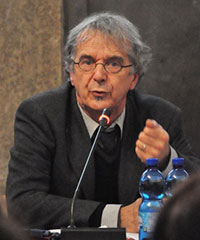 Léonce BEKEMANS, JM Chair Università di Padova - IDEAL lecturer
Léonce BEKEMANS, JM Chair Università di Padova - IDEAL lecturer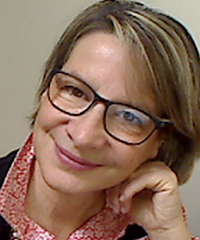 Floriana CONTE, Università Cattolica del Sacro Cuore - International Office UCSC
Floriana CONTE, Università Cattolica del Sacro Cuore - International Office UCSC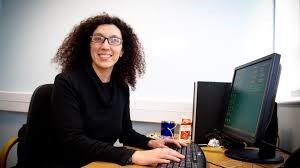 Sharon COEN, University of Salford – IDEAL lecturer
Sharon COEN, University of Salford – IDEAL lecturer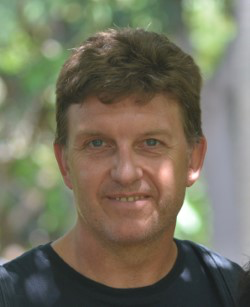 Ángel GÓMEZ JIMENEZ, Universidad Nacional de Educación a Distancia, Madrid – IDEAL lecturer
Ángel GÓMEZ JIMENEZ, Universidad Nacional de Educación a Distancia, Madrid – IDEAL lecturer Nicola MONTAGNA, University of Middlesex - IDEAL lecturer
Nicola MONTAGNA, University of Middlesex - IDEAL lecturer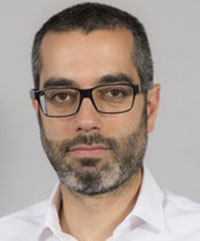 Albert MORA CASTRO, Universidad de Valencia - IDEAL lecturer
Albert MORA CASTRO, Universidad de Valencia - IDEAL lecturer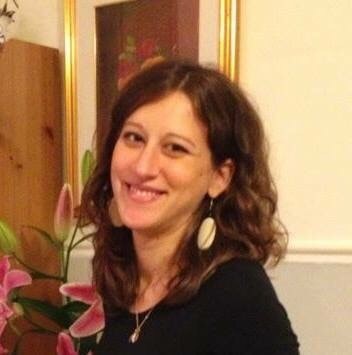 Alessandra GEROLIN, Università Cattolica del Sacro Cuore – University of Nottingham – IDEAL lecturer
Alessandra GEROLIN, Università Cattolica del Sacro Cuore – University of Nottingham – IDEAL lecturer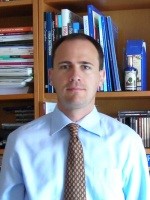 Paolo MOLINARI, Università Cattolica del Sacro Cuore – IDEAL lecturer
Paolo MOLINARI, Università Cattolica del Sacro Cuore – IDEAL lecturer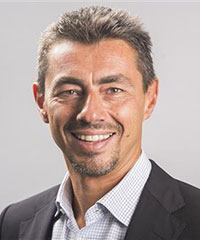 Luciano MORGANTI, Free University of Brussels - IDEAL lecturer
Luciano MORGANTI, Free University of Brussels - IDEAL lecturer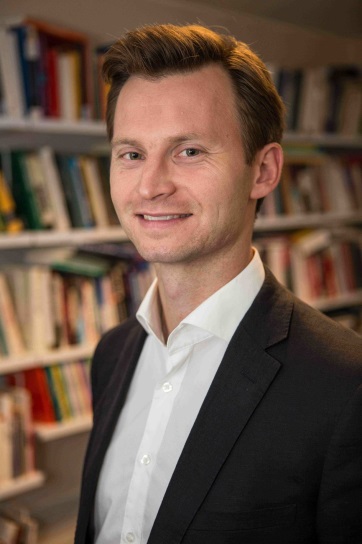 Adrian PABST, University of Kent - IDEAL lecturer
Adrian PABST, University of Kent - IDEAL lecturer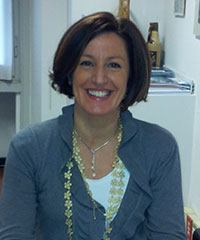 Elena RIVA, Università Cattolica del Sacro Cuore - IDEAL lecturer
Elena RIVA, Università Cattolica del Sacro Cuore - IDEAL lecturer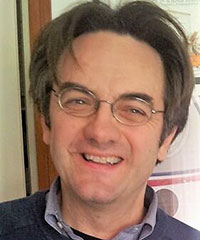 Paolo RUSPINI, Università della Svizzera Italiana USI Lugano - IDEAL lecturer
Paolo RUSPINI, Università della Svizzera Italiana USI Lugano - IDEAL lecturer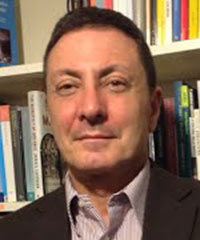 Carlo RUZZA, Università di Trento - IDEAL lecturer
Carlo RUZZA, Università di Trento - IDEAL lecturer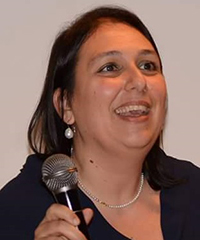 Mariagrazia SANTAGATI, Università Cattolica del Sacro Cuore - Project Communication and Web Resources
Mariagrazia SANTAGATI, Università Cattolica del Sacro Cuore - Project Communication and Web Resources